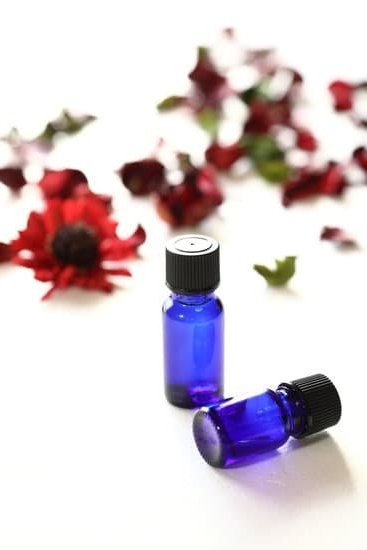Mental health plays a crucial role in our overall well-being, affecting how we think, feel, and act. In today’s fast-paced world, stress, anxiety, and other mental health issues have become increasingly prevalent. This is where aromatherapy mental health comes into play as a potential solution. Aromatherapy is a holistic approach that harnesses the power of essential oils to improve mental health and emotional well-being.
Aromatherapy involves the use of aromatic essential oils derived from plants to promote relaxation, reduce stress, and uplift mood. These oils can be inhaled or applied to the skin for therapeutic benefits. By stimulating the olfactory system in our brains, aromatherapy helps to calm the mind and body, creating a sense of harmony and balance. It is a natural and non-invasive way to support mental health without relying on medications or invasive treatments.
Research has shown that specific essential oils used in aromatherapy possess properties that can positively impact mental health conditions such as anxiety, depression, and insomnia. From lavender’s calming effects to peppermint’s energizing properties, each essential oil offers unique benefits for improving mental well-being. In the following sections, we will explore the numerous ways in which aromatherapy can enhance our mental health and provide practical tips on incorporating it into our daily routines.
Understanding Aromatherapy
Aromatherapy plays a significant role in improving mental health by utilizing the power of essential oils to positively impact emotions and overall well-being. Understanding what aromatherapy is and how it works can provide valuable insights into its potential benefits for mental wellness.
What Is Aromatherapy?
Aromatherapy is a holistic healing treatment that uses natural plant extracts, known as essential oils, to promote physical, psychological, and emotional well-being. These aromatic compounds are derived from flowers, leaves, roots, fruits, and other parts of plants through processes like distillation or cold pressing. When these essential oils are inhaled or applied to the skin, they can stimulate certain areas of the brain that are responsible for controlling emotions and memories, leading to various therapeutic effects.
How Does Aromatherapy Improve Mental Health?
The practice of aromatherapy can have a positive impact on mental health in several ways. The inhalation of essential oils can trigger the release of neurotransmitters like serotonin and endorphins, which are responsible for regulating mood and reducing stress. Additionally, certain scents have been shown to stimulate the limbic system in the brain, which influences emotions and behavior.
By incorporating aromatherapy into daily routines, individuals can experience reduced anxiety, improved sleep quality, enhanced relaxation, and increased feelings of overall well-being. The use of essential oils in aromatherapy provides a natural and non-invasive way to support mental health without relying on medication alone.
Benefits of Aromatherapy for Mental Health
Aromatherapy has long been utilized as a natural remedy to promote mental well-being. The use of essential oils in aromatherapy can have a profound impact on mental health, with the potential to reduce stress, anxiety, and improve overall mood.
Aromatherapy works by stimulating the olfactory system, which is directly linked to the brain’s limbic system – the area responsible for emotions, memories, and behavior. This allows for essential oils to exert their therapeutic effects on both the mind and body.
Stress Reduction
One of the most notable benefits of aromatherapy for mental health is its ability to reduce stress levels. Essential oils like lavender, bergamot, and chamomile are known for their calming properties and can help promote relaxation.
The inhalation of these oils through diffusers or aromatherapy inhalers can trigger a sense of calmness and tranquility, making them ideal tools for managing stress in everyday life. By incorporating these oils into your self-care routine, you can create a peaceful environment that promotes emotional balance.
Anxiety Relief
Another significant advantage of using aromatherapy for mental health is its potential in alleviating anxiety symptoms. Essential oils such as rosemary, frankincense, and ylang ylang are known for their anxiolytic properties and can help ease feelings of tension and worry.
Whether through massage oils or bath blends, these soothing scents can provide relief from anxious thoughts and induce a sense of peace. By introducing aromatherapy into your daily regimen, you can experience a natural way to manage anxiety and support your mental well-being.
Mood Enhancement
In addition to reducing stress and anxiety, aromatherapy can also enhance mood and uplift spirits. Citrus oils like lemon, orange, and grapefruit are often used in aromatherapy for their energizing and mood-boosting effects. These refreshing scents can help combat feelings of fatigue or low spirits, promoting emotional vitality and positivity. By incorporating these invigorating essential oils into your environment through diffusers or room sprays, you can create a more uplifting atmosphere that supports emotional wellness throughout the day.
Different Types of Essential Oils
Essential oils have gained popularity for their potential benefits on mental health through aromatherapy. Among the wide variety of essential oils used, some stand out for their soothing and calming effects. Lavender, known for its relaxing properties, is often used to reduce anxiety and promote better sleep. Peppermint offers a refreshing and invigorating scent that can help alleviate feelings of fatigue and enhance focus. Chamomile is another essential oil commonly used to promote relaxation and ease symptoms of stress.
In a study published in the Journal of Clinical Psychiatry, researchers found that inhaling the aroma of lavender essential oil reduced levels of anxiety in participants with generalized anxiety disorder (GAD). The calming effect of lavender can be particularly beneficial for individuals struggling with chronic stress or insomnia. Peppermint oil has also been studied for its potential to improve cognitive performance and boost mood through its stimulating properties.
Other essential oils like chamomile have been shown to possess anti-anxiety and antidepressant effects. According to research published in the Alternative Therapies in Health and Medicine journal, chamomile essential oil may help alleviate symptoms of depression by promoting relaxation and reducing irritability. These popular essential oils are just a few examples of the natural remedies that can be incorporated into daily routines to support mental well-being.
| Essential Oil | Main Benefits |
|---|---|
| Lavender | Reduces anxiety, promotes better sleep |
| Peppermint | Alleviates fatigue, enhances focus |
| Chamomile | Promotes relaxation, reduces stress and irritability |
How to Use Aromatherapy
Aromatherapy is a popular holistic practice that can have significant benefits for mental health. By utilizing the natural scents of essential oils, aromatherapy can help reduce stress, anxiety, and promote overall well-being. Incorporating aromatherapy into daily routines can be a simple yet effective way to improve mental health and enhance emotional balance.
Here are some detailed instructions on how to use aromatherapy in various forms:
- Diffusers: One of the most common ways to enjoy the benefits of aromatherapy is through diffusers. These devices disperse essential oils into the air, allowing you to breathe in the aromatic molecules. Simply add a few drops of your favorite essential oil or blend to the water reservoir of the diffuser and turn it on. You can place diffusers in different rooms of your home or office to create a calming environment throughout the day.
- Inhalers: Aromatherapy inhalers are portable devices that let you enjoy the benefits of essential oils on-the-go. These small tubes contain a cotton wick infused with essential oils that you can inhale directly through your nose. To use an inhaler, simply take off the cap, hold it close to your nostrils, and take deep breaths for a quick mood boost or sense of relaxation.
- Bath Oils: Adding essential oils to your bathwater is another luxurious way to experience aromatherapy benefits while unwinding after a long day. Mix a few drops of your chosen essential oil with a carrier oil such as coconut or jojoba oil before adding it to your bath.
The warm water will help release the aroma of the oils, creating a soothing atmosphere for relaxation and stress relief. Take deep breaths and unwind as you soak in the healing properties of aromatherapy-infused bath oils.
Incorporating aromatherapy into daily routines through diffusers, inhalers, and bath oils can be an excellent way to support mental health and well-being naturally. Experiment with different essential oils and methods to discover what works best for you in promoting relaxation, reducing stress, and enhancing overall emotional wellness.
Aromatherapy Techniques for Specific Mental Health Issues
Aromatherapy is a holistic approach that has gained popularity for its potential to improve mental health and overall well-being. When it comes to specific mental health issues like depression, insomnia, and mood disorders, aromatherapy can offer a natural and effective way to alleviate symptoms and promote relaxation.
One of the most common essential oils used in aromatherapy for depression is lavender oil. Lavender is known for its calming properties and is often recommended for reducing feelings of anxiety and promoting emotional balance. Inhaling the soothing scent of lavender oil through a diffuser or applying it topically can help elevate mood and ease depressive symptoms.
For individuals struggling with insomnia, essential oils such as chamomile and valerian root are popular choices in aromatherapy. Chamomile oil is renowned for its sedative effects, helping to induce relaxation and improve sleep quality. Combining a few drops of chamomile oil with a carrier oil for a bedtime massage or adding it to a warm bath before sleep can promote restful slumber.
In cases of mood disorders where individuals may experience fluctuating emotions or heightened stress levels, citrus essential oils like bergamot and grapefruit are often recommended in aromatherapy. These uplifting oils are believed to enhance mood, reduce feelings of anxiety, and provide a sense of emotional stability. Diffusing citrus essential oils or creating a personal inhaler for on-the-go use can aid in balancing emotions and promoting mental well-being.
| Specific Mental Health Issue | Recommended Essential Oils |
|---|---|
| Depression | Lavender |
| Insomnia | Chamomile, Valerian Root |
| Mood Disorders | Bergamot, Grapefruit |
Research and Studies
When it comes to addressing mental health concerns, aromatherapy has garnered attention as a complementary therapy to traditional treatments. Scientific research and studies have increasingly shown the benefits of incorporating aromatherapy into mental health routines.
One significant aspect of aromatherapy is its ability to impact the limbic system, the part of the brain that controls emotions and memories. By inhaling essential oils, individuals can stimulate this area of the brain and evoke positive emotional responses, helping to alleviate stress, anxiety, and even depression.
Here are some key research findings that highlight the effectiveness of aromatherapy for mental health:
- In a study published in the Journal of Alternative and Complementary Medicine, researchers found that using lavender essential oil in aromatherapy sessions significantly reduced levels of anxiety in participants compared to a control group.
- Another study published in Evidence-Based Complementary and Alternative Medicine revealed that inhaling citrus essential oils like lemon or orange can help improve mood and reduce symptoms of depression.
- Research conducted at Ruhr University Bochum in Germany showed that exposure to rosemary essential oil helped enhance cognitive performance and memory retention, making it beneficial for individuals experiencing cognitive issues related to mental health conditions.
Based on these research findings and many more ongoing studies, it is evident that aromatherapy has a promising role in supporting mental well-being. Incorporating essential oils into daily routines or implementing specific aromatherapy techniques tailored to individual mental health issues can be a natural and safe way to improve overall psychological wellness. Whether used alone or in conjunction with other therapeutic approaches, aromatherapy offers a holistic approach to enhancing mental health that deserves further exploration and consideration.
Tips for Incorporating Aromatherapy Into Your Mental Health Routine
Aromatherapy can be a powerful tool in improving mental health and overall well-being. By incorporating aromatherapy into your daily routine, you can experience the calming and uplifting effects of essential oils that can help reduce stress, anxiety, and promote a sense of relaxation. Here are some practical tips on how to integrate aromatherapy into your mental health routine for improved emotional balance.
One way to incorporate aromatherapy into your self-care practices is by using a diffuser. Diffusers disperse essential oils into the air, allowing you to breathe in the therapeutic scents and reap the benefits. Whether you place a diffuser in your bedroom for a calming atmosphere before bed or in your workspace to enhance focus and concentration, this simple tool can make a big difference in your mental well-being.
Another effective way to use aromatherapy for mental health is through inhalers or roll-on blends. Portable and convenient, these products allow you to enjoy the benefits of essential oils on-the-go.
You can keep an inhaler with a soothing blend of oils like lavender or chamomile in your bag for moments of stress or anxiety, providing you with an instant sense of calm wherever you are. Roll-on blends can be applied directly to pulse points for quick relief from tension or unease throughout the day.
Incorporating aromatherapy into your self-care routine doesn’t have to be complicated – even a relaxing bath with essential oils can work wonders for your mental well-being. Adding a few drops of lavender or eucalyptus oil to your bathwater can create a spa-like experience that promotes relaxation and helps you unwind after a long day. Taking time for yourself to indulge in these simple yet effective practices can contribute to improved mental health and emotional balance over time.
Conclusion
In conclusion, aromatherapy can be a powerful tool in promoting mental health and well-being. The use of essential oils in aromatherapy has been shown to have a positive impact on reducing stress, anxiety, and even symptoms of depression. By incorporating aromatherapy into your daily routine, whether through diffusers, inhalers, or bath oils, you can experience the calming and therapeutic benefits these natural scents have to offer.
Research and studies have provided evidence supporting the effectiveness of aromatherapy for mental health issues. From lavender to peppermint to chamomile, different types of essential oils cater to various mental health concerns, offering relief and relaxation when needed most. Aromatherapy techniques tailored for specific issues like depression, insomnia, and mood disorders showcase the versatility of this holistic approach in addressing a wide range of mental health challenges.
As you embark on your journey toward improved mental wellness through aromatherapy, remember that self-care is key. By integrating aromatherapy into your mental health routine, you are taking proactive steps towards nurturing your mind and soul. Ultimately, by giving aromatherapy a try as a holistic approach to mental wellness, you may discover newfound peace and balance amidst life’s daily stresses. Embrace the power of scent as a way to uplift your spirits and enhance your overall well-being.
Frequently Asked Questions
How Does Aromatherapy Help Mental Health?
Aromatherapy can help mental health by promoting relaxation, reducing stress, and improving mood. The use of essential oils like lavender, chamomile, and bergamot can have a calming effect on the mind, easing anxiety and depression symptoms.
What Essential Oils Are Good for Mental Health?
Some essential oils known for supporting mental health include lavender, known for its calming properties; bergamot, which can uplift mood; chamomile, helpful in reducing anxiety; and frankincense, often used for grounding and centering the mind.
What Are the 4 Types of Mental Health?
The four main types of mental health disorders are mood disorders (like depression and bipolar disorder), anxiety disorders (such as generalized anxiety disorder or phobias), psychotic disorders (like schizophrenia), and impulse control and addiction disorders (such as substance abuse). Each type presents with unique symptoms that impact individuals’ emotional well-being.

Are you looking for a natural way to improve your health and wellbeing?
If so, aromatherapy may be the answer for you.





